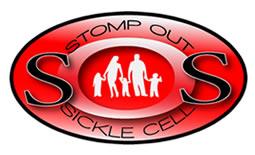 About 2 years ago, Trey reached out to me after hearing me talk about starting my blog on a podcast. On the podcast I mentioned that after my daughter was diagnosed I needed a community that provided support. Although I attended church, I did not have a strong support system nor an outlet to raise awareness about the disorder. I needed more. Trey has been a big encouragement and support to me and my family, and I sincerely thank him for being willing to share his story about growing up with a Mom who lives with Sickle Cell Anemia. Trey, I am forever grateful for the way who have dedicated your life to the cause and I thank you!
About 2 years ago, Trey reached out to me after hearing me talk about starting my blog on a podcast. On the podcast I mentioned that after my daughter was diagnosed I needed a community that provided support. Although I attended church, I did not have a strong support system nor an outlet to raise awareness about the disorder. I needed more. Trey has been a big encouragement and support to me and my family, and I sincerely thank him for being willing to share his story about growing up with a Mom who lives with Sickle Cell Anemia. Trey, I am forever grateful for the way who have dedicated your life to the cause and I thank you!
Please share why awareness about Sickle Cell Disease is important to you?
Sickle Cell Disease is important to me because of its impact on my family. My mother has the disease, and growing up seeing her endure the pain of a crisis makes me want there to be a cure for the disease.
You mentioned seeing your mom go through a crisis. How did you handle that?
YES…many times! Growing up, I would see my mom have many crises, and as often as they happened (once a year/every two years) I’d get worried every time. But, as I got older and as my mom got older, she would be a little more prepared for the onset of a crisis. She can usually tell when life has taken its hold on her health due to stress, lack of rest, and other factors that she attributes to the onset of a crisis. I would give her whatever it was that she needed: a heating pad, rides to the hospital (once I got my license), water, make her food, or whatever it was she needed. I would do my best to provide for her. My mom’s crises have diminished considerably since she moved to Arizona. As far as I know, she’s had only 1 crisis in the 9 years she’s been out there.
What are some ways that family members of a loved one living with Sickle Cell Disease can lend their support?
They need to learn and understand how the disease affects the person. Understanding the person is pretty important—how they handle stress, their eating habits, etc.—as well because the coupling of stress and personality are vital to assisting the person with stress management and the disease. Also, knowing what medications work for the person if they have to go to the hospital is equally important. It’s rarely treated by health professionals, so usually the dosages that are requested by the patient are viewed as something a “drug addict” might request; however, I think when the request is coming from a family member they may be more prone to listen.
What do you want the world to know about people living with Sickle Cell Disease?
Living with SCD is not a death sentence. It’s also not contagious; however, living a healthy lifestyle SHOULD lead to a full life for the person living with the disease.
How are you raising awareness about Sickle Cell Disease, and how can others help support this cause?
I run fundraisers through my company, teaching people to salsa while raising money to donate to the cause. Simultaneously, we are a sponsor for the Stomp Out Sickle Cell 5k Walk and are looking for more walkers!! If anyone is interested in walking, join my team “Health and Fitness 4 You!”
Read the other #30forSickleCell posts here:
- September is National Sickle Cell Awareness Month
- #30forSickleCell Know Your Sickle Cell Trait Status
- Sickle Cell – A Parent’s Perspective #30forSickleCell
- Sickle Cell – A Hematologist’s Perspective
- Sickle Cell: A Firsthand Look at T.J. Brown’s Holistic Experience
- Sickle Cell: Erase the Shame and End the Silence #30forSickleCell
Help raise awareness about Sickle Cell, please share this tweet:
Learn how one son helps support his mom who lives w/ #SickleCellAnemia. #30forSickleCell http://t.co/woSEyJfXii pic.twitter.com/RKZNzbsSPx
— CleverMom (@Cleverlychangin) September 8, 2014
Children’s Healthcare of Atlanta, 2014, 7, September. What are the effects of Sickle Cell Disease? Retrieved from http://youtu.be/_HhUpT3g-m8.
Related articles across the web




